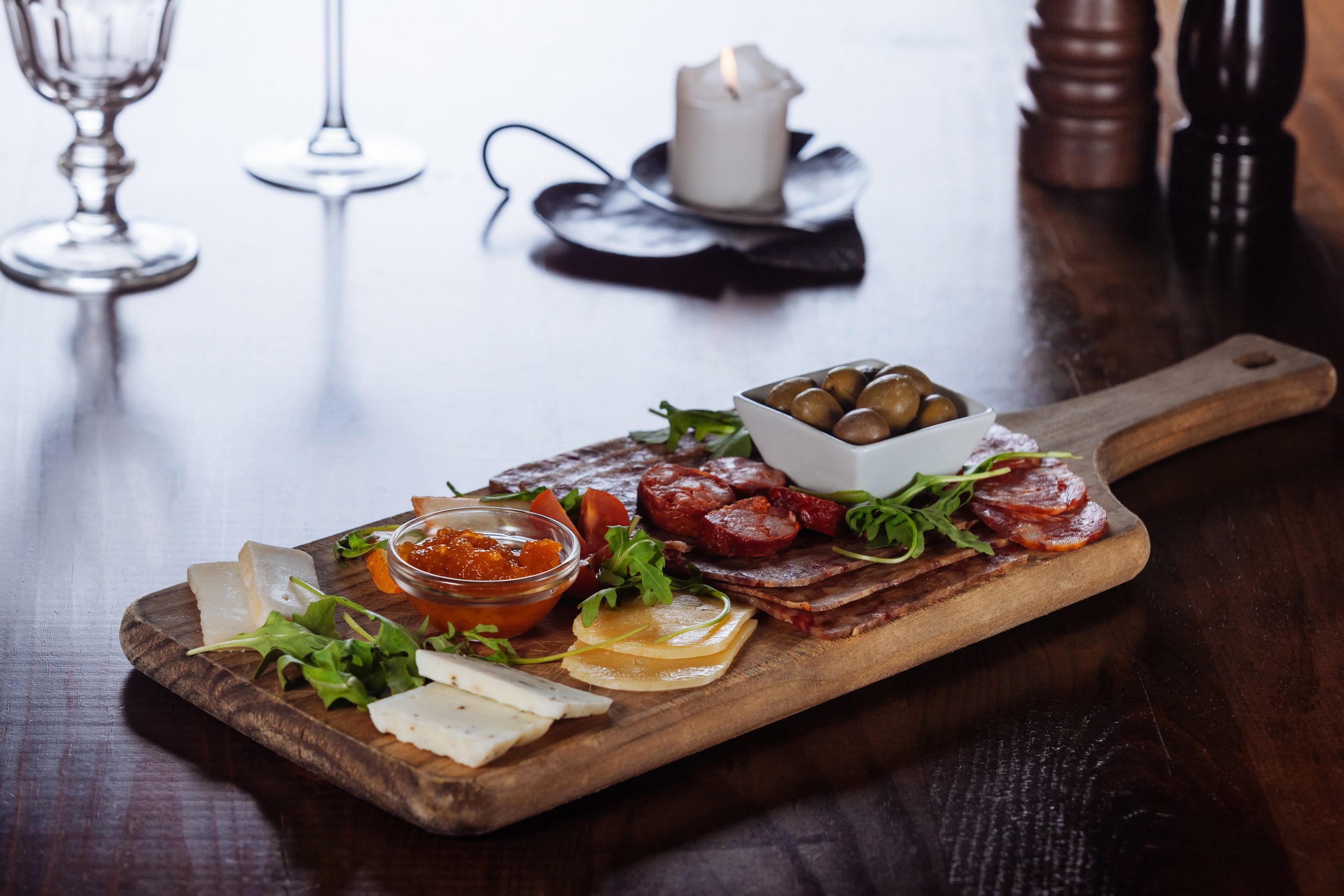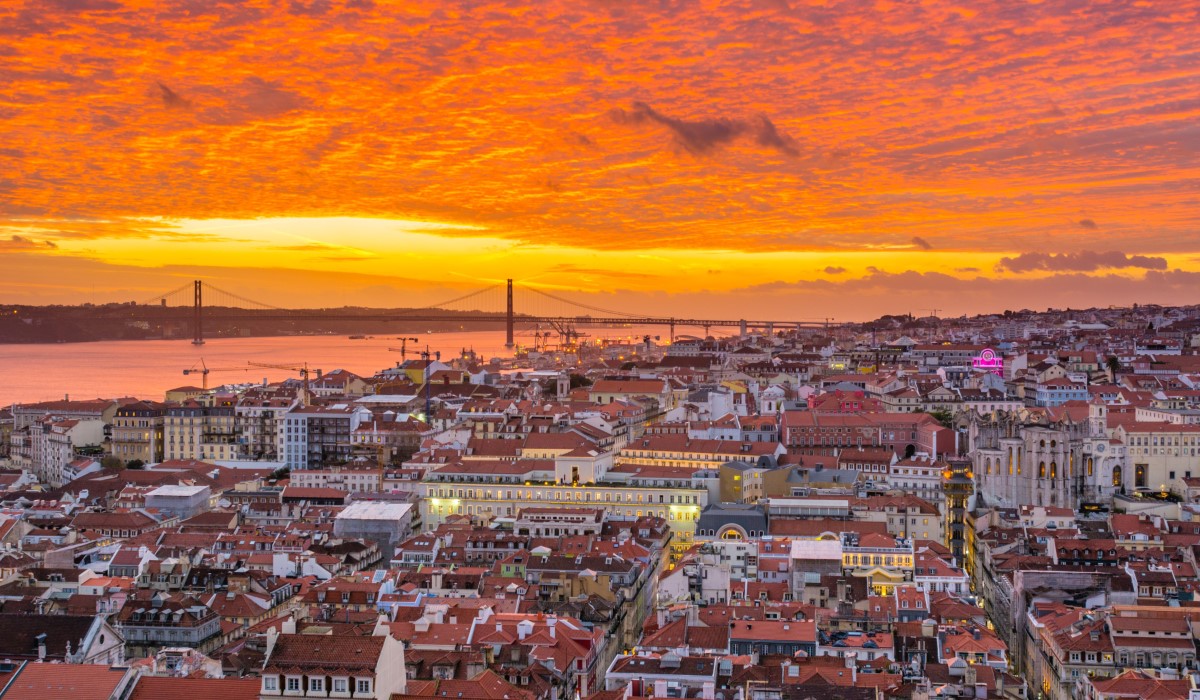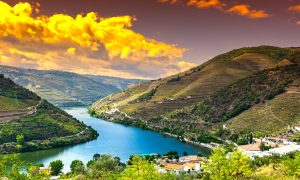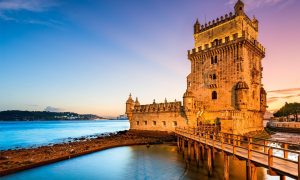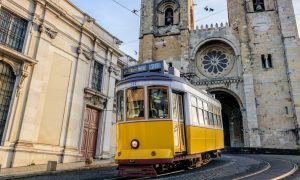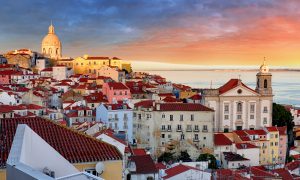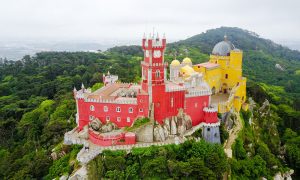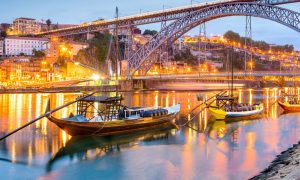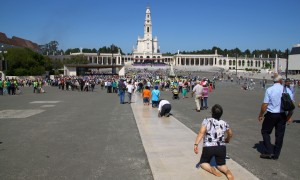Nestled within the rolling hills of Portugal’s captivating capital, Alfama stands as a testament to Lisbon’s enduring spirit and rich history. As the oldest district in the city, Alfama is more than just a neighborhood; it’s a living museum, a picturesque postcard, and a vibrant cultural hub, all woven seamlessly together. This charming labyrinth of narrow cobbled streets, ancient houses, and hidden courtyards is a journey through time, offering a glimpse into a bygone era while still pulsating with the rhythms of modern-day Lisbon.
Steeped in history, Alfama has witnessed the rise and fall of civilizations, survived natural disasters, and adapted to the changing tides of time, yet it has retained its unique character. From its Moorish origins to its current status as a beloved tourist destination, Alfama has always maintained its distinct identity. The district’s architectural tapestry tells a story of resilience and beauty – from the imposing São Jorge Castle, perched majestically atop the highest hill, offering breathtaking views across the city, to the intricate azulejos (ceramic tiles) that adorn many buildings, reflecting the artistic heritage of Portugal.
Alfama is also the birthplace of Fado, Portugal’s soulful folk music. The melancholic melodies and poignant lyrics that drift through its streets at night are a profound expression of the Portuguese ‘saudade’ – a sense of longing and nostalgia. These Fado houses, along with the area’s traditional restaurants and taverns, are the beating heart of Alfama, where locals and visitors alike gather to experience the authentic soul of Lisbon.
As you embark on a journey through Alfama, you’ll find that each turn reveals a new marvel, be it a panoramic viewpoint, a historic church, or a vibrant street scene. Alfama invites you to lose yourself in its winding alleys, discover its hidden gems, and immerse yourself in the essence of Lisbon.
Here are 20 must-visit attractions in Alfama:
- São Jorge Castle (Castelo de São Jorge): A Moorish castle offering panoramic views of Lisbon and the Tagus River.
- Lisbon Cathedral (Sé de Lisboa): The city’s oldest church, a mix of architectural styles, reflecting Lisbon’s history.
- National Pantheon (Panteão Nacional): The final resting place of Portuguese luminaries, housed in a grand Baroque building.
- Fado Museum (Museu do Fado): A museum dedicated to Fado, the traditional Portuguese music genre, deeply rooted in Alfama.
- Miradouro das Portas do Sol: A famous viewpoint offering stunning vistas of Alfama’s rooftops and the Tagus River.
- Feira da Ladra: Lisbon’s oldest flea market, perfect for finding unique antiques and handcrafted items.
- Tram 28: The iconic tram that winds its way through Alfama’s narrow streets, offering a quintessential Lisbon experience.
- Santo Estêvão Church: Known for its Baroque architecture and beautiful views from its esplanade.
- Casa dos Bicos – José Saramago Foundation: A historic house with a unique façade, now a cultural center dedicated to Nobel laureate José Saramago.
- São Vicente de Fora Monastery: A Renaissance monastery with impressive azulejos (tiles) and panoramic views from its rooftop.
- Lisbon’s Decorative Arts Museum (Museu de Artes Decorativas): Housed in a 17th-century palace, showcasing traditional Portuguese interiors and decor.
- Miradouro de Santa Luzia: Another picturesque viewpoint, adorned with azulejos, overlooking the Alfama district.
- Church of Santa Engrácia: An impressive 17th-century monument with a distinctive dome, offering exhibitions and events.
- The Roman Theater Museum (Museu do Teatro Romano): Showcasing the archaeological remains of Lisbon’s ancient Roman theater.
- Lisbon Water Museum (Museu da Água): A unique museum highlighting the importance of water in the city, located in an old reservoir.
- Rua dos Remédios: A bustling street in Alfama, lined with quaint shops and cafes.
- Escolas Gerais and Largo das Portas do Sol: A vibrant area with street vendors, musicians, and traditional Fado houses.
- Igreja de Santo António: A church built on the birthplace of Saint Anthony of Lisbon, with a small museum dedicated to his life.
- Alfama’s Street Art: Explore Alfama’s colorful street art and murals, reflecting the district’s cultural diversity.
- Vila Sousa – Garden of Olive Trees (Jardim das Oliveiras): A peaceful garden offering a quiet escape from the bustling streets, with ancient olive trees and lovely views.
In conclusion, Alfama is not just a historical district; it’s a living, breathing testament to Lisbon’s rich past and vibrant present. As you wander through its labyrinthine streets, you’re walking through layers of history, each corner telling a story, each viewpoint offering a different perspective of this beautiful city. From the commanding heights of São Jorge Castle to the intimate Fado houses, Alfama encapsulates the essence of Lisbon’s charm.
Visiting Alfama is like stepping into a different era. The area’s resilience is evident in its architecture, which has withstood earthquakes and seen centuries of change. The azulejos-adorned buildings, the Gothic cathedrals, and the sun-drenched plazas speak of a bygone age, yet pulse with contemporary life. The sounds of Fado, Portugal’s soulful music genre, echo through the alleys, inviting visitors to pause and savor the melancholy tunes that are as much a part of Lisbon as the Tagus River.
Moreover, Alfama’s social fabric is woven tightly with local traditions. The Feira da Ladra flea market, where locals and tourists alike search for treasures, and the lively street festivals, where neighbors gather to celebrate, are experiences that allow visitors to connect with the heart of Lisbon’s community.
Alfama is more than a tourist destination; it’s an experience that engages all senses. The aroma of traditional Portuguese dishes wafting from small taverns, the stunning views from its miradouros, and the warm hospitality of its residents make Alfama a must-visit for anyone wanting to truly understand Lisbon. In Alfama, every visit is a discovery, and every moment is an opportunity to delve deeper into the story of Lisbon.

Gonzalo
Founder/Owner of The Lisbon Guide, one of the major blog references in Portugal, established in 2014 and receiving every year 250.000 visitors from all over the world, looking to provide the best experiences in Portugal. In partnership with Portugal Magik for all private tours and transfers across Portugal, Gonzalo loves a good seafood meal at Monte Mar Cascais, and all from Michelin Chef Avillez. Favorite Hotel in Lisbon/Portugal, Penha Longa Resort by Ritz Carlton.
For over 15 years, Gonzalo have been helping thousands of travelers yearly to plan a perfect trip to Portugal. Based in Lisbon/Cascais and working in this field for over 20 years, with multiple ongoing projects. Also an avid TripAdvisor user level 6 with more than 300.000 readers worldwide.
Many years working also as a Private Guide of Lisbon, Sintra, Fatima, Porto, Douro Valley, Evora, and other locations in Portugal.











